The Imperative and the expression of orders in Spanish (19th and 20th centuries)
DOI:
https://doi.org/10.54166/rhle.2013.08.04Abstract
The aim of this paper is to analyze different syntactic constructions which presumably express orders. We've selected constructions with imperative and subjunctive verbs, as well as other formally heterogeneous constructions, belonging to nineteenth and twentieth century Mexican Spanish. The present work contains syntactic, semantic and pragmatic analysis of constructions based on speech acts theory. We want to determine, specifically, whether the discursive context in which the sentences appear changes the interpretation, whether the imperative, in alternating with other structures, involves the expression of an order, and whether there exists any diachronic change.
Downloads
References
CORPUS
SIGLO XIX:
Calderón, Fernando (1972): “A ninguna de las tres”, en A. Magaña Esquivel (selección, prólogo y notas), Teatro mexicano del siglo XIX, México: Fondo de Cultura Económica, 202-284.
González Bocanegra, Francisco (1972): “Vasco Núñez de Balboa”, en A. Magaña Esquivel (selección, prólogo y notas), Teatro mexicano del siglo XIX, México: Fondo de Cultura Económica, 399-490.
López Portillo y Rojas, José (1996): La parcela, 17ª. ed., México: Porrúa.
SIGLO XX :
Fuentes, Carlos (1962): La muerte de Artemio Cruz, México: Fondo de Cultura Económica.
Garro, Elena (1983): “Un hogar sólido”, en Un hogar sólido y otras piezas, Xalapa: Universidad Veracruzana.
Garro, Elena (1983): “Los pilares de doña Blanca”, en Un hogar sólido y otras piezas, Xalapa: Universidad Veracruzana, 29-41.
Garro, Elena (1983): “El Rey Mago”, en Un hogar sólido y otras piezas, Xalapa: Universidad Veracruzana, 43-63.
Garro, Elena (1983): “El Encanto, Tendajón Mixto”, en Un hogar sólido y otras piezas, Xalapa: Universidad Veracruzana, 101-120.
Garro, Elena (1983): “El árbol”, en Un hogar sólido y otras piezas, Xalapa: Universidad Veracruzana, 143-170.
REFERENCIAS BIBLIOGRÁFICAS
Anscombe, G. Elisabeth M. (1959): Intención, Barcelona: Paidós.
Austin, John (1962/1976): How to do things with words, London/Oxford/New York: Oxford University Press. DOI: https://doi.org/10.1093/acprof:oso/9780198245537.001.0001
Bach, Kent y Robert M. Harnish (1979): Linguistic communication and speech acts, Cambridge: MIT.
Blakemore, Diane (1992): Understanding utterances, Oxford: Blackwell.
Carston, Robyn (2002): Thoughts and utterances. The pragmatics of explicit communication, Oxford: Blackwell. DOI: https://doi.org/10.1002/9780470754603
Company Company, Concepción (1994): “Semántica y sintaxis de los posesivos duplicados en el español de los siglos XV y XVI”, Romance Philology, 48, 3, 111-135.
Company Company, Concepción (1995a): “Old forms for new concepts. The recategorization of possessive duplications in Mexican Spanish”, en H. Andersen (ed.), Historical Linguistics 1993, Amsterdam: John Benjamins, 77-93. DOI: https://doi.org/10.1075/cilt.124.07com
Company Company, Concepción (1995b): “Cantidad vs. cualidad en el contacto de lenguas. Una incursión metodológica en los posesivos redundantes del español americano”, Nueva Revista de Filología Hispánica, 43, 2, 305-340. https://doi.org/10.24201/nrfh.v43i2.1880 DOI: https://doi.org/10.24201/nrfh.v43i2.1880
Company Company, Concepción (2002): “Gramaticalización y dialectología comparada. Una isoglosa sintáctico-semántica del español”, Dicenda. Cuadernos de Filología Hispánica, 20, 39-71.
Company Company, Concepción (2007): El siglo XVIII y la identidad lingüística de México. Discurso de ingreso a la Academia Mexicana de la Lengua, México: Universidad Nacional Autónoma de México.
Davis, Steven (1980): “Perlocutions”, en F. Kiefer, J. S. Searle y Manfred Bierwisch (eds.), Speech act theory and pragmatics, Amsterdam: D. Reidel, 37-56. DOI: https://doi.org/10.1007/978-94-009-8964-1_2
Escandell, María Victoria (1996): Introducción a la pragmática, Barcelona: Ariel.
Garrido, Joaquín (1999): “Los actos de habla. Las oraciones imperativas”, en I. Bosque y V. Demonte (dirs.), Gramática descriptiva de la lengua española, vol. III, Madrid: Espasa Calpe, 3879-3928.
Grande Alija, Francisco (2006): “La cortesía verbal como reguladora de las interacciones verbales”, La competencia pragmática y la enseñanza del español como lengua extranjera. Actas del XVI Congreso Internacional de ASELE, Oviedo: Ediciones de la Universidad de Oviedo, 332-342.
Grice, Herbert Paul (1975): “Logic and conversation”, en P. Cole y J. Morgan (eds.), Syntax and semantics, vol. 3. Speech acts, New York: Chicago Linguistic Society, 41-58.
Haverkate, Henk (1979): Impositive sentences in Spanish, Amsterdam: North Holland.
Haverkate, Henk (1994): La cortesía verbal. Estudio pragmalingüístico, Madrid: Gredos.
Leech, Geoffrey N. (1983): Principles o f pragmatics, London/New York: Longman.
Lyons, John (1977): “Mood and illocutionary force”, Semantics: 2, Cambridge/New York: Cambridge University Press, 725-786. DOI: https://doi.org/10.1017/CBO9780511620614.009
Portolés, José (2004): Pragmática para hispanistas, Madrid: Síntesis.
RAE/ASALE (2009): Nueva gramática de la lengua española (2 vols.), Madrid: Espasa Calpe.
Reynoso Noverón, Jeanett (2005): “Procesos de gramaticalización por subjetivización: el uso del diminutivo en español”, en D. Eddington (ed.), Selected proceedings of the 7th Hispanic linguistics symposium, Somerville, MA.: Cascadilla Proceedings Project, 79-86.
Sadok, Jerrold (1974): Toward a linguistic theory of speech acts, New York: Academic Press.
Sbizà, Marina (2001): “Elocutionary force and degrees of strength in language use”, Journal o f Pragmatics, 33, 1791-1814. https://doi.org/10.1016/S0378-2166(00)00060-6 DOI: https://doi.org/10.1016/S0378-2166(00)00060-6
Searle, John (1969): Speech acts. An essay in the philosophy of language, Cambridge: Cambridge University Press. DOI: https://doi.org/10.1017/CBO9781139173438
Searle, John (1975): “Indirect speech acts”, en P. Cole y J. Morgan (coords.), Syntax and semantics, 3: Speech acts, New York: Academic Press. DOI: https://doi.org/10.1163/9789004368811_004
Searle, John (1983): Intentionality: an essay in the philosophy o f mind, Cambridge: Cambridge University Press. DOI: https://doi.org/10.1017/CBO9781139173452
Searle, John (1995): The construction o f social reality. New York: Simon and Schuster.
Searle, John (1998): Mind, language, society. Philosophy in the real world, New York: Basic Books.
Searle, John (2000): Rationality in action, Cambridge, Mass.: MIT Press. DOI: https://doi.org/10.1093/oso/9780198238904.003.0013
Sperber, Dan y Deirdre Wilson (1986/1995): Relevance. Communication and cognition, Oxford: Blackwell.
Strawson, Peter F. (1964): “Intention and conversation in speech acts”, en S. Davis (ed.), Pragmatics. A reader. Oxford: Oxford University Press, 290-302.
Stubbs, Michael (1983): Discourse analysis: the sociolinguistic analysis of natural language. Oxford: Blackwell/Chicago: University of Chicago Press.
Turrión Borrallo, Pablo (2013): “El mandato indirecto en el español actual. Estudio de una muestra audiovisual”, Tonos Digital: Revista de Estudios Filológicos, 24, formato electrónico <http://hdl.handle.net/10201/35840>.
Wilson, Deirdre (1999): “Metarepresentation in linguistic communication”, UCL Working Papers in Linguistics, 15, 303-324.
Wilson, Deirdre y Dan Sperber (1988): “Mood and the analysis of Non-declarative sentences”, en A. Kasher (ed.), Pragmatics. Critical concepts, London: Routledge, 268-289.
Wilson, Deirdre y Dan Sperber (1993): “Linguistic form and relevance”, Lingua, 90, 1-25. https://doi.org/10.1016/0024-3841(93)90058-5 DOI: https://doi.org/10.1016/0024-3841(93)90058-5

















